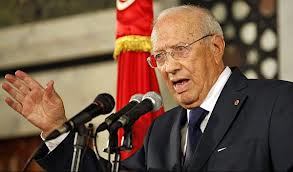With many of its articles removed, Tunisia’s law on “economic reconciliation” looks likely to be adopted by parliament in the coming days. But the text is still imperfect and remains controversial.
Two years ago, on July 14, 2015, President Beji Caied Essebsi presented to the cabinet his proposed law on “Special measures concerning reconciliation in the the economic and financial field”. This Bill was submitted to parliament shortly afterwards, but has continued to raise protest, not only in parliament but also on the streets and amongst national and international organizations. One of the fiercest civil society opponents has been Manich Msamah (“I will not forgive”), a group of young people who have organized dozens of demonstrations throughout the country to protest against “the law whitewashing the corrupt”.
In the current context where Prime Minister Youssef Chahed is waging a campaign against corruption and contraband, the draft law has nevertheless been sent back to the parliamentary legislative committee for the third time. A consensus between the two parties in power seems to have been found and so, two years after being submitted to parliament, the law looks about to be adopted.
Initial text transformed
Given the resistance to the law, it has during recent parliamentary debates been emptied of many of its provisions. But even so, it still draws criticism.
The law is in fact made up of three parts: amnesty for public employees facing court action for financial misdeeds and misappropriating public funds; “reconciliation” with businessmen accused of corruption; and amnesty for abuses linked to exchange rate dealings.
Civil society activist Oumayma Mehdi, project assistant for the parliamentary observatory project of NGO Al Bawsala (“compass”), has been following closely the debates on this Bill. “It was quickly decided in parliament to take out the last part, which has no place in this initiative, and put it soon in a separate law on exchange dealing amnesty,” she says.
The aspect most opposed by civil society is reconciliation with corrupt businessmen. It was street protests, mostly organized by young activists of Manich Msamah where slogans were chanted against corruption, that got this article removed from the law. In fact, only the provisions relating to public employees have been maintained in the version currently being debated. The initial text has been so transformed that MPs are suggesting its name be changed to the law on “administrative amnesty”.
“But even with only that part left, the law is still problematic,” says Oumayma Mehdi. “That is why Al Bawsala has opposed it from the outset.”
Gifts in kind
“They did not gain reward from services rendered to businessmen close to the government, even if those services broke the law,” argues the presidential office in defence of amnesty for public employees and people in associated posts, i.e. ministers, secretaries of State, ministerial advisors, ambassadors, judges, governors.
But how can it be proven that they did not get a reward, especially since the authorities’ thank-you gifts in kind take many forms, such as keeping public employees in post against their bosses’ advice, and awarding study grants for their children.
“How can you define and quantify the reward?” adds Oumayma Mehdi. “The Reconciliation Commission that the law proposes to set up does not have the means to access the archives, nor to conduct investigations.” In addition, there is nothing to force amnestied public employees to participate in public hearings to explain their case.
Jurist Farah Hachad is particularly critical of this. “People amnestied will not have to go before the Reconciliation Commission to confess and explain the cases in which they are implicated,” she says. “But this information is key to understanding the mechanisms of corruption, and could help corroborate facts in more important cases.”
Risk of repetition
In an October 2015 “interim Opinion” on the President’s proposed law, the Venice Commission – a Council of Europe consultative body on constitutional law – was categorical. “The procedure before the Reconciliation Commission does not permit the achievement of one of the objectives of transitional justice, namely reform of the institutions,” it said.
The proposed law neglects victims and is too generous to people who used their power to undermine the law, according to many of its opponents.
“The proposed law would guarantee impunity to those who misused public funds in the past,” says Salwa El Gantri, Tunis bureau director of the International Center for Transitional Justice (ICTJ).
The current climate of consensus between the two big parties in power means there is a good chance the revised Bill will be approved before the end of this parliamentary session on July 24.






